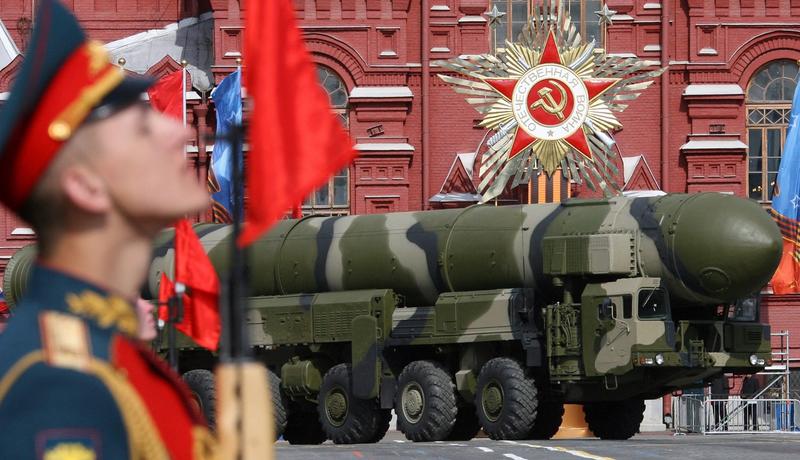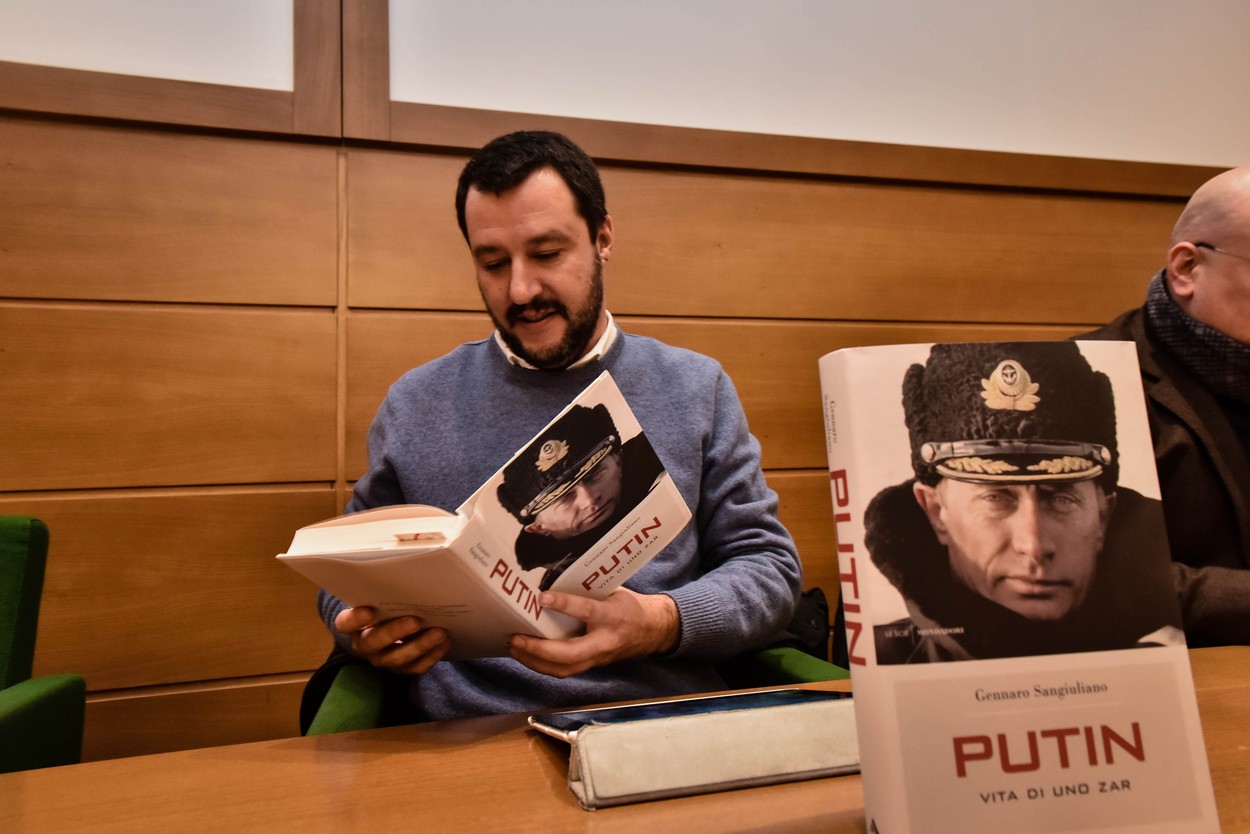
Nostalgia for the Soviet era and anti-Western sentiment are fueling online support for Vladimir Putin and his war against Ukraine. While the West is united in its condemnation of Russia’s invasion of Ukraine, opinion is markedly divided in some countries of the developing world, where Russia is not vilified but revered for what some see as its anti-Western stance and hypocrisy. Al Jazeera.
In Southeast Asia, a region dominated by strongman political leaders for decades and nostalgic in some quarters for the Soviet Union, Russian President Vladimir Putin has a large following among social media users who sympathize with his invasion of Ukraine and find him macho . the image is attractive.
“Vladimir Putin’s popularity in Indonesia is quite impressive,” said Raditjo Dharmaputra, a lecturer in Russian and East European studies at Airlangga University in Indonesia.
Putin’s hypermasculine, militarized image fits Indonesia’s political culture and its history of uniformed rulers, Dharmaputra says, noting that while public sentiment about Moscow’s invasion of Ukraine is mixed, there is an active and vocal pro-Russian minority on Indonesian social media.
Putin’s supporters on social media perceive Russia as a noble anti-Western state challenging the hegemony of the hypocritical West, he says.
“Indonesians tend to trust less authoritarianism and more a strong leader, someone who can be very assertive against foreign countries,” he told Al Jazeera.

Vladimir Putin fishing on a fishing rod. Photo: YouTube capture
“Friendly Russia” / Strong online activity of pro-Russians
“Russia, as the heir to the Soviet Union, is seen as a sort of anti-imperial and anti-colonial state,” Dharmaputra told Al Jazeera, adding another dimension to local support for Putin and antipathy to the West.
The Soviet Union supported the newly independent Indonesia – politically and militarily – in its dispute with the former colonial power of the Netherlands over the province of Irian Jaya (now West Papua) in the early 1960s. Moscow’s intervention forced the Dutch to back down from their demands. .
Like old friends, support for Russia remains among Indonesians, explained Arief Setiawan, a professor of international relations at Indonesia’s Brawijaya University, and for the same reasons as in the 1950s, including Indonesian aversion to “US hegemony.”
Washington’s wars in Muslim countries such as Afghanistan and Iraq have also done nothing for relations with Indonesia, the country with the world’s largest Muslim population, he told Al Jazeera.
“Most of my friends support Russia,” he added.
Support in Malaysia too / Contempt for the West and mainstream media
In neighboring Malaysia, researchers examining pro-Putin sentiment on social media also found hostility to the West and support for Russia because of Moscow’s perceived ties to Muslims and the Islamic world.
The pro-Russian worldview in Malaysian social media tends to pit “evil Western imperialists” against benevolent Russia, which has been “unfairly accused” as the aggressor with the complicity of the media and Western experts.
“Russia is seen as an alternative ‘superpower’ that can compete with neo-colonialism and Western influence on an equal footing,” wrote Benjamin Loh, a senior lecturer at Taylor’s University in Kuala Lumpur, and Munira Mustaffa, chief executive of the Chasseur Group. , a Malaysian research firm.
And regardless of whether they are on the left or the right in politics, pro-Russian supporters on Malaysian social media harbor a “shared disdain for the West,” particularly the United States and mainstream Western media, the authors found.
Such views are not always marginal, and not only for social networks.
In 2019, then-Malaysian Prime Minister Mahathir Mohamad questioned Russia’s involvement in the downing of Malaysian Airlines flight MH17, despite evidence pointing to its role.
On Thursday, a court in the Netherlands found three men, including two Russians linked to separatists, guilty of murder and sentenced them to life in prison.
A Pew Research Center survey conducted in February-May this year among nearly 23,500 adults in 18 countries found that the vast majority of respondents have a “very” unfavorable opinion of Russia, with the exception of Malaysia.

An intercontinental ballistic missile on parade on Red Square in Moscow Photo: Yuriy Kadobnov / AFP / Profimedia Images
“Putinomania” in Vietnam
Being sent to the Soviet Union to study in post-war Vietnam in the 1970s and 1980s was considered a great honor, writes Vietnam scholar To Minh Son, and Moscow is remembered for its support of Vietnam’s recovery after the war against the US.
Generations of Vietnamese academics, scientists, government officials and political officials were educated in the Soviet Union, To Minh Son notes, and an international opinion poll conducted in 2017 found the Vietnamese to be more ardent supporters of Putin than even the Russians themselves. .
In Vietnam, the Russian leader’s approval rating among Vietnamese was 89%.
Competing narratives play out on Facebook in Vietnam, where Putin supporters are steeped in “Soviet-Vietnamese nostalgia and argue that Ukraine is getting what it deserves by provoking the Russian bear next door through NATO expansionism.
On the other hand, there is also a group criticizing Russia’s war in Ukraine and gaining positions.
Tho Minh Son told Al Jazeera that he has noticed some subtle changes in the coverage of the Vietnam War in Ukraine in recent months.
As Russia’s military bogged down in the war, the Kremlin’s most vocal supporters on social media appeared to have become “frustrated and skeptical” of the Russian military’s incompetence in waging war.
And state media became more truthful in reporting what happened on the battlefield, rather than simply promoting a narrative favorable to Moscow.
Cambodia: People Need “Heroes”
In neighboring Cambodia, Putin’s strongman image resonates with a population accustomed to authoritarian leaders, explains Ou Virak, president of the Future Forum social policy think tank in Phnom Penh.
For many Cambodians, Putin’s leadership style is a far more comprehensible model of governance than the complex nature of democracy with its demands for representation, transparency and process, U Virak said in a recent interview with Al Jazeera.

Salvini (PHOTO: Matarazzo-Fotogramma-Ropi)
“Tsar” Vladimir Putin / Why does the international cult of Putin matter?
In the official media, Putin is presented as a determined, intelligent and strong person. He flies airplanes, rides horses, deep dives, etc. In other places, much of this would seem ridiculous, but not in Russia, where in this way Putin is created the image of a providential leader.
When Vladimir Putin first became Russia’s leader in 1999-2000, he seemed like an anomaly – a strong nationalist leader in an era of globalist technocrats. Angela Merkel, the former chancellor of Germany, once suggested that Putin was trying to apply 19th-century methods to another era.
As Russian columnist Dmytro Trenin notes: “Putin is a pre-communist leader. He is the king.”
One of the biggest dangers of the current crisis in Ukraine was that if Putin emerged victorious, his leadership style would become even more prestigious and attract even more imitators around the world, the Financial Times writes.
Land grabs, military threats, lies, and murders will appear to be the techniques of the victor. Putin has already served as a model for a new generation of authoritarian and populist leaders, including in Europe and the United States.
Therefore, the current confrontation between Russia and the West concerns not only the independence of Ukraine, no matter how important it is. The outcome of this crisis will also determine the tone of world politics.
If Putin succeeds in intimidating Western democracies, his tough thug style will seem like the wave of the future.
Literature:
- The secret life of Vladimir Putin. The head of the Kremlin turned 70 years old
- Western analysts portray Vladimir Putin: between brutality and “paranoia”
- Putin’s psychological profile: a grandiose sense of self-importance with exaggerated claims of automatic submission to his wishes
Ashley Bailey is a talented author and journalist known for her writing on trending topics. Currently working at 247 news reel, she brings readers fresh perspectives on current issues. With her well-researched and thought-provoking articles, she captures the zeitgeist and stays ahead of the latest trends. Ashley’s writing is a must-read for anyone interested in staying up-to-date with the latest developments.